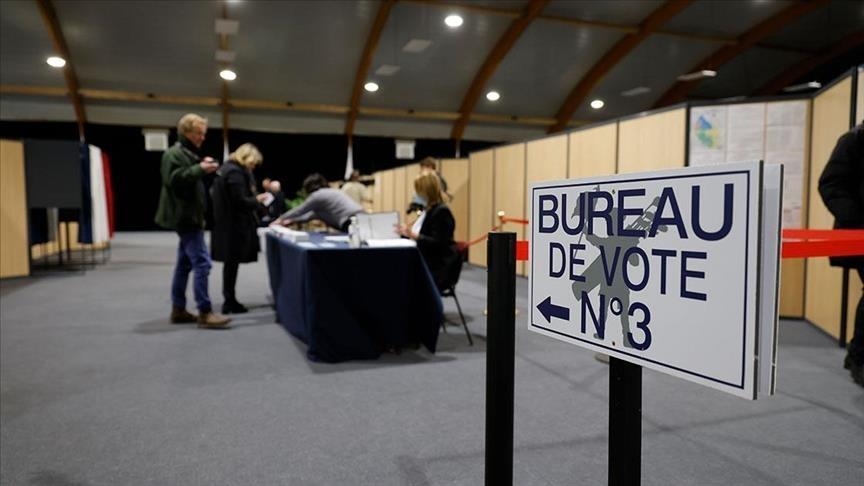
PARIS, June 19 (NNN-AGENCIES) — The French will head back to polling stations for the final round of legislative elections Sunday to vote for parliament lawmakers who will decide policies for the next five years.
In light of the presidential elections in April that sparked collective anxiety about France heading toward far-right politics, the country appears to be in course correction mode with the resurgence of left-wing politics that could threaten President Emmanuel Macron’s majority in parliament.
Though he was reelected with a comfortable margin against far-right opponent Marine Le Pen in the presidential vote, winning a solid majority in the legislature will not be easy.
In 2017, his alliance gained 345 seats in the national assembly. To win an absolute majority in the 577-seat National Assembly, Macron will need at least 289 seats. Polls predict his alliance will win between 265 and 305 seats, however, the results will be by much less than during his first term.
The key factor to Macron is a newly forged left-wing party coalition called NUPES, or the New Ecologic and Social People’s Union, painfully gathered by Jean-Luc Melenchon.
The far-left veteran, after his third place in the presidential election, now aspires to be the premier. He is a preferred candidate for youngsters who want policies to be left driven by socialism and an ecologist agenda.
According to an Ipsos Sopra Steria poll, around 46% of people want the left to win the majority with Melenchon as prime minister. Pollsters have projected 150 – 190 seats for the NUPES.
Le Pen’s National Rally is expected to win 30 to 50, a huge jump from its current eight seats.
In the first round, Macron’s Ensemble alliance won a razor-thin margin of 25.75% against the NUPES’ 25.66%. If the presidential majority fails in the second round, Macron will be forced to seek an alliance with opposition parties.
The fear of running the government for the next five years on shaky ground has prompted Macron to appeal to voters for a “strong majority” from the tarmac before departing for eastern Europe this week.
“During the first round, you put the presidential majority in the lead. But more of you have expressed your doubts, your anxieties, by abstaining or choosing another candidate,” he said, acknowledging votes in favor of the left-wing NUPES.
He even invoked the “best interests of the Nation” and the consequences of the Ukraine war on energy needs and the economy, to convince voters to come out and “give the country a solid majority on Sunday.”
As has been the trend in recent elections, voting remains highly vulnerable to low-turnout. More than half of voters — 52.49% of the total registered — did not vote in the first round.
For the second round, abstention could reach a record 53% to 56%.
According to the BFMTV’s Elabe survey, the projected turnout hangs between 44% and 47%, with the rest staying away.
Polling stations will open at 8 a.m. and close at 6 p.m., except for big cities where they will close at 8 p.m. — NNN-AGENCIES




